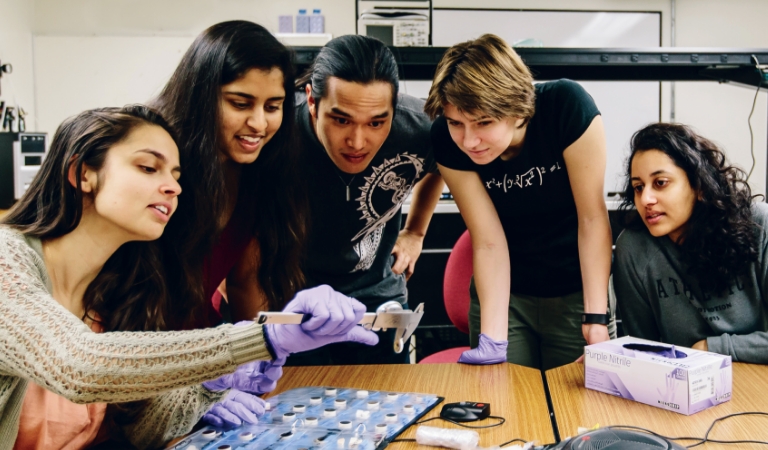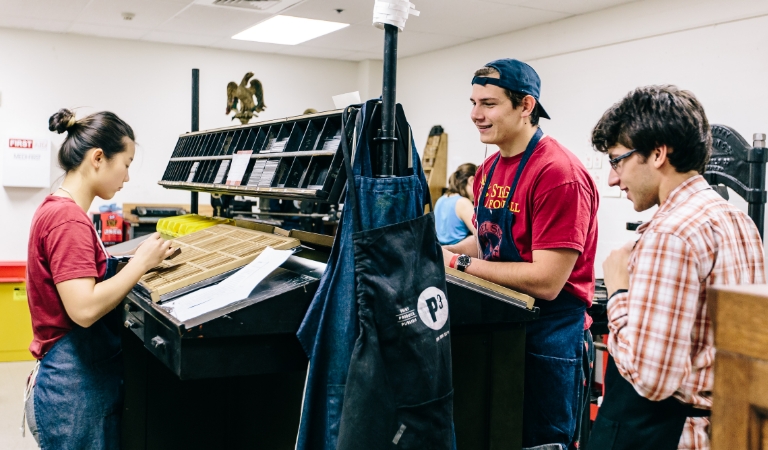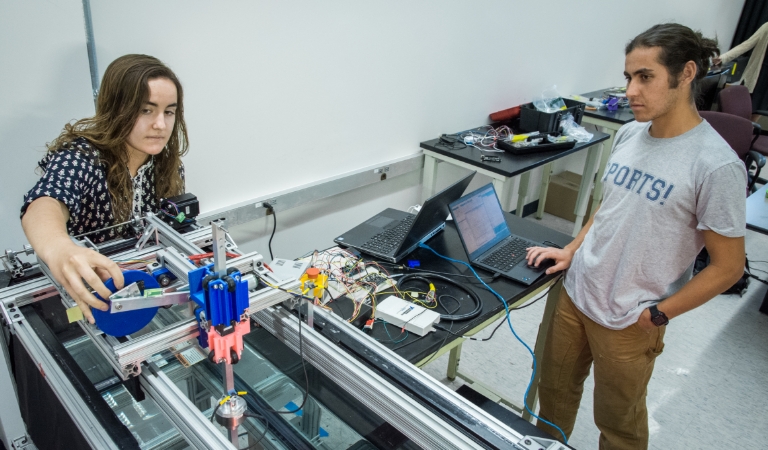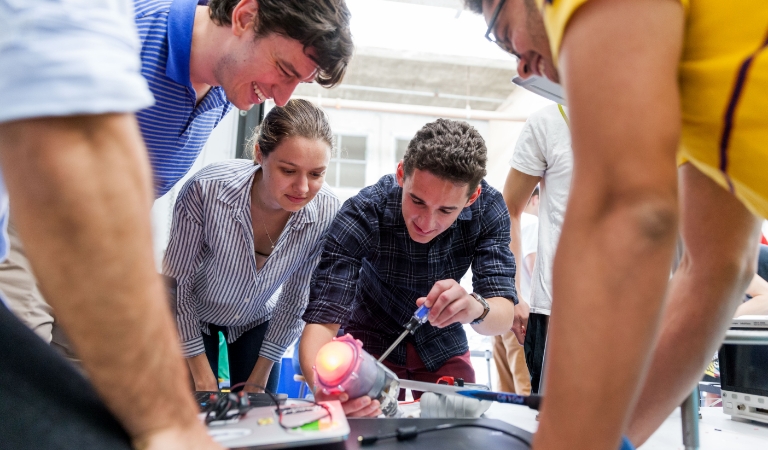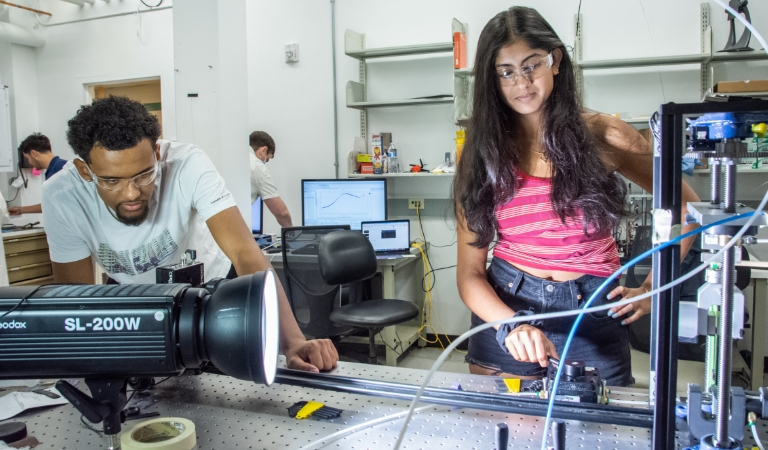The Common Core
A Broad Foundation in STEM Disciplines
Our educational experience starts with the Common Core, a set of coordinated courses from every department—biology, chemistry, computer science, engineering, math, physics and humanities, social sciences and the arts. The Core gives you a broad scientific background coupled with academic writing and critical inquiry. No matter what your future major, you will gain a solid interdisciplinary foundation.
